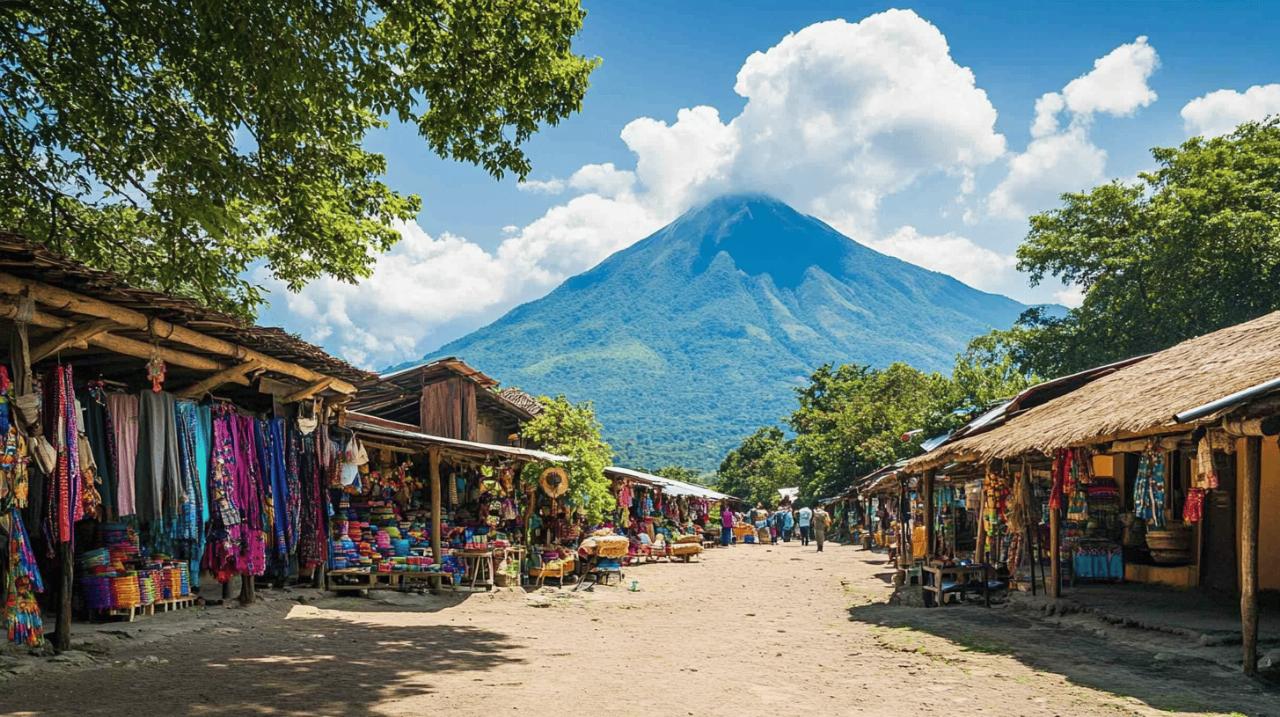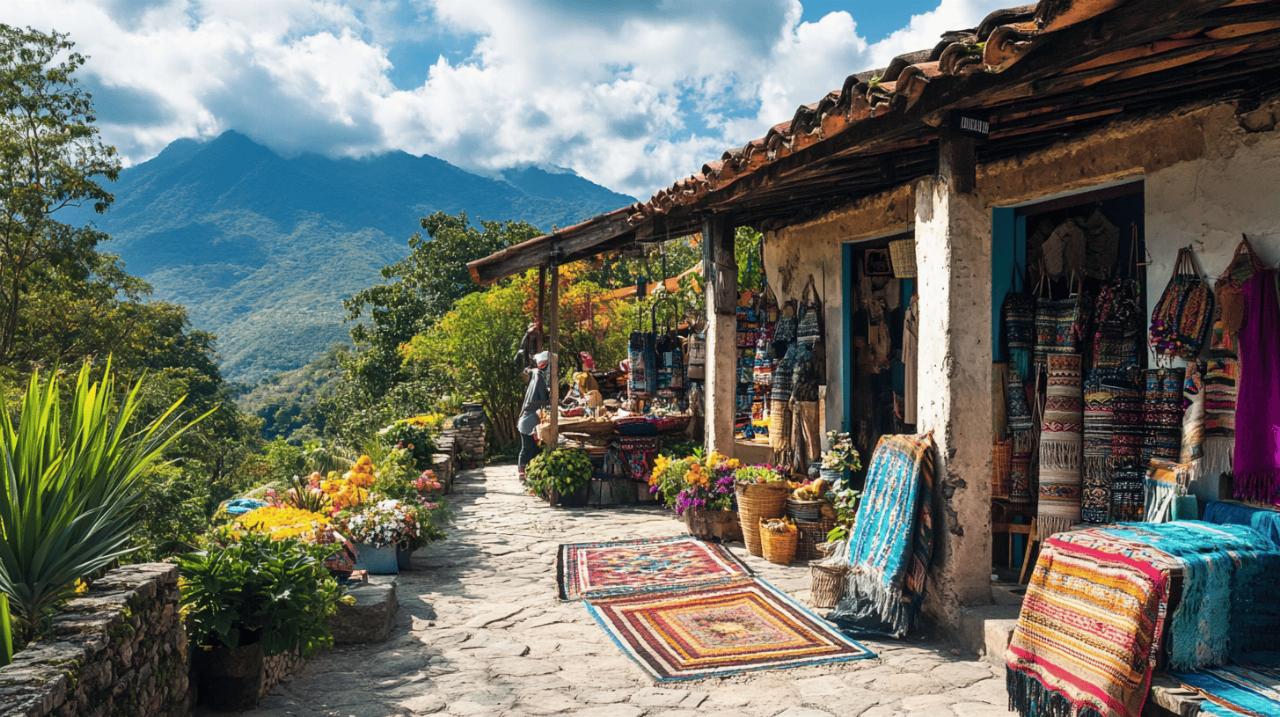Considering a journey to Guatemala? Before you set off on your Central American adventure, it is essential to understand the current travel landscape and the support structures available to British nationals abroad. Guatemala offers a wealth of cultural richness and natural beauty, yet like any destination, it demands informed preparation and awareness. The Foreign, Commonwealth & Development Office provides regularly updated guidance to help travellers navigate potential risks, whilst the British Embassy in Guatemala stands ready to assist UK citizens in times of need. Understanding these elements enables you to travel with confidence and clarity.
Understanding the Current Security Landscape in Guatemala
Crime patterns and geographical risk assessment across guatemala
Guatemala presents a complex security picture that varies significantly by region and urban area. The capital, Guatemala City, experiences higher levels of crime, particularly in certain districts where travellers should exercise heightened vigilance. Petty theft and opportunistic crime remain the most common concerns, especially in busy markets, public transport hubs, and tourist attractions. Visitors are advised to remain aware of their surroundings and avoid displaying valuables or large amounts of cash in public spaces. The situation improves considerably in well-established tourist areas such as Antigua, a colonial town that attracts considerable international attention, and around Lake Atitlán, where communities are accustomed to welcoming foreign visitors. Nevertheless, even in these favoured destinations, maintaining situational awareness is crucial. Regional variations mean that some areas warrant additional caution. The FCDO advises against all but essential travel to locations within five kilometres of the Mexican border, extending from the Pacific Coast up to and including the Gracias a Dios crossing, as well as the towns of Santa Ana Huista, San Antonio Huista, and La Democracia. These zones present elevated risks due to cross-border criminal activity and limited security infrastructure. Travellers planning routes through remote or rural regions should consult the latest advisories and consider local security conditions before departure. Road travel can also be unpredictable, particularly during the rainy season when conditions deteriorate and roadblocks may appear without warning. Understanding these geographical nuances allows travellers to tailor their itineraries accordingly and make informed decisions about where to spend their time in Guatemala.
Government travel advisories and official safety recommendations
Official travel guidance from the United Kingdom, Canada, and New Zealand consistently highlights the importance of preparation and vigilance when visiting Guatemala. The Foreign, Commonwealth & Development Office regularly updates its travel advice, with the most recent revision occurring in June of this year, and these updates remain current as of October. Subscribing to email notifications ensures that travellers receive prompt alerts about any changes in the security situation or new risks that may emerge. The advisories emphasise the need for comprehensive travel insurance that covers a range of activities, including adventure sports and medical emergencies. Without adequate insurance, travellers may face substantial costs if they require medical evacuation or emergency treatment. Beyond insurance, the guidance underscores the necessity of verifying passport validity, ensuring that travel documents have at least six months remaining beyond the date of arrival and contain at least two blank pages for entry and exit stamps. Visitors can enter Guatemala for up to ninety days without a visa, but overstaying this period incurs fines payable at the Institute of Migration or at border crossings. Completing an online immigration declaration form before entry or exit streamlines the process and helps avoid unnecessary delays. For those planning extended stays or working visits, consulting the Guatemalan Embassy in the United Kingdom about visa requirements is essential. Children aged seventeen and under travelling alone or with only one parent require a notarised letter in Spanish, a detail that should not be overlooked when organising family trips. Travellers should also be aware of the Central America CA-4 agreement, which allows movement between Guatemala, El Salvador, and Nicaragua for up to ninety days, though overstaying in one country can result in exclusion from the other two. Vigilance at land borders is necessary, as unofficial 'entry fees' sometimes arise; requesting an official receipt helps guard against such irregularities. These recommendations form a comprehensive framework for safe and compliant travel to Guatemala.
Practical Safety Measures and Preparations for British Travellers
Essential travel insurance and health precautions before departure
Securing robust travel insurance is non-negotiable before embarking on a trip to Guatemala. Policies should cover medical emergencies, theft, trip cancellations, and ideally include provisions for medical evacuation, which can prove vital in remote areas where healthcare facilities may be limited. Consulting a healthcare professional four to six weeks before departure allows sufficient time to arrange necessary vaccinations and discuss health risks specific to the region. Routine UK vaccinations, including measles, mumps, and rubella, diphtheria, tetanus, and polio, should be up to date. Beyond these, hepatitis A vaccination is recommended for all travellers, whilst a tetanus booster may be required if more than ten years have elapsed since the last dose. Typhoid vaccination is particularly advised for those visiting smaller towns or staying with friends and relatives. Rabies pre-exposure vaccination merits consideration for travellers engaging in activities that increase contact with animals or those visiting areas with limited access to medical care. Yellow fever certification is necessary only if arriving from or transiting through countries where yellow fever transmission occurs, and this requirement applies to travellers over one year old. Malaria risk exists below one thousand five hundred metres in certain departments, including Alta Verapaz, Baja Verapaz, Escuintla, Izabal, and Petén, where prescription antimalarial medication is advised. Malaria is not transmitted in Guatemala City, Antigua, or around Lake Atitlán. The primary malaria species present are Plasmodium vivax, accounting for ninety-nine percent of cases, and Plasmodium falciparum, responsible for the remaining one percent. Dengue, chikungunya, and Zika viruses are transmitted by mosquitoes in Guatemala, making insect bite prevention essential. Using repellents containing DEET, picaridin, OLE, or IR3535, wearing long sleeves and trousers, and sleeping under bed nets or in screened accommodations all reduce exposure. Travellers planning high-altitude destinations above two thousand five hundred metres should take precautions against altitude illness by ascending gradually and allowing time for acclimatisation. Rising measles cases globally have prompted a Level 1 Travel Health Notice, underscoring the importance of ensuring full vaccination with the MMR vaccine at least two weeks before departure. Additionally, cases of New World screwworm myiasis have been reported across Central America, including Guatemala. Travellers should avoid insect bites, clean and cover wounds promptly, and avoid contact with livestock. Assembling a travel health kit with items to prevent and treat common illnesses and injuries, such as antiseptics, bandages, pain relievers, and rehydration salts, ensures preparedness for minor health issues that may arise during the trip.
On-the-ground safety protocols and situational awareness tips
Once in Guatemala, maintaining situational awareness and adhering to practical safety protocols significantly reduces risk. In urban areas, particularly Guatemala City, sticking to well-trodden tourist routes and avoiding poorly lit or isolated areas after dark is prudent. Using official taxis or reputable ride-sharing services rather than hailing cabs on the street minimises exposure to potential scams or crime. Keeping valuables out of sight, avoiding the display of expensive jewellery or electronics, and carrying only the cash needed for immediate expenses all help deter opportunistic theft. When using ATMs, selecting machines located within banks or secure premises during daylight hours reduces vulnerability. Public transport can be crowded and occasionally targeted by pickpockets, so remaining alert and securing bags close to the body is advisable. For those planning to drive, wearing seatbelts is mandatory, and avoiding travel after dark on rural or poorly maintained roads mitigates risks associated with hazardous conditions and limited visibility. Exercising caution near roadblocks, which can occur without warning, and following local advice or detours suggested by authorities ensures smoother journeys. Food and water safety also merit attention. Drinking bottled or purified water, avoiding ice in beverages, and consuming well-cooked meals from reputable establishments reduce the likelihood of gastrointestinal illness. Handwashing with soap or using alcohol-based hand sanitiser, especially before eating, is a simple yet effective measure. Respecting local customs and dress codes, particularly in rural or indigenous communities, fosters positive interactions and demonstrates cultural sensitivity. Staying informed about local conditions by monitoring news sources and heeding advice from the British Embassy or local authorities ensures that travellers remain aware of any emerging risks or safety concerns. Avoiding confrontations, remaining calm if approached by authorities, and carrying copies of important documents such as passports and insurance policies all contribute to a safer travel experience. By integrating these practices into daily routines whilst in Guatemala, British travellers can enjoy the country's attractions whilst minimising potential hazards.
The British Embassy's Support Services for UK Nationals in Guatemala
Consular Assistance and Emergency Support Available to British Citizens
 The British Embassy in Guatemala provides a range of consular services designed to assist UK nationals during their stay. In the event of an emergency, such as arrest, hospitalisation, or the loss of a passport, the embassy offers guidance and support to help navigate complex situations. Consular staff can liaise with local authorities, provide lists of local lawyers or medical practitioners, and contact family members on behalf of the traveller if necessary. Whilst the embassy cannot provide legal representation, financial assistance, or intervene in local legal processes, it serves as a vital point of contact for British citizens facing difficulties abroad. In cases of serious incidents, such as natural disasters, civil unrest, or significant security threats, the embassy coordinates information and assistance to ensure the safety and welfare of UK nationals. It is important to note that the embassy's capacity to assist is most effective when travellers have registered their presence and provided contact details, enabling timely communication during emergencies. The embassy also offers advice on local laws and customs, helping travellers understand their rights and responsibilities whilst in Guatemala. For those requiring urgent assistance, the embassy can be contacted during working hours, and an emergency helpline is available outside regular office hours for critical situations. Understanding the scope and limitations of consular support empowers travellers to seek appropriate help when needed and to take proactive steps to safeguard their wellbeing. The embassy's role complements the traveller's own preparations, forming part of a comprehensive approach to safe international travel.
The British Embassy in Guatemala provides a range of consular services designed to assist UK nationals during their stay. In the event of an emergency, such as arrest, hospitalisation, or the loss of a passport, the embassy offers guidance and support to help navigate complex situations. Consular staff can liaise with local authorities, provide lists of local lawyers or medical practitioners, and contact family members on behalf of the traveller if necessary. Whilst the embassy cannot provide legal representation, financial assistance, or intervene in local legal processes, it serves as a vital point of contact for British citizens facing difficulties abroad. In cases of serious incidents, such as natural disasters, civil unrest, or significant security threats, the embassy coordinates information and assistance to ensure the safety and welfare of UK nationals. It is important to note that the embassy's capacity to assist is most effective when travellers have registered their presence and provided contact details, enabling timely communication during emergencies. The embassy also offers advice on local laws and customs, helping travellers understand their rights and responsibilities whilst in Guatemala. For those requiring urgent assistance, the embassy can be contacted during working hours, and an emergency helpline is available outside regular office hours for critical situations. Understanding the scope and limitations of consular support empowers travellers to seek appropriate help when needed and to take proactive steps to safeguard their wellbeing. The embassy's role complements the traveller's own preparations, forming part of a comprehensive approach to safe international travel.
Registration Services and Staying Connected with Embassy Updates
Registering with the British Embassy before or upon arrival in Guatemala is a straightforward yet valuable step that enhances safety and communication. Registration enables the embassy to reach out to travellers in the event of an emergency, natural disaster, or significant security development. It also facilitates the provision of tailored advice and support based on the traveller's location and planned activities. The registration process is typically conducted online and requires basic information such as contact details, travel dates, and accommodation addresses. Keeping this information up to date throughout the trip ensures that the embassy can provide timely assistance if circumstances change. In addition to registration, subscribing to email notifications for updates to the FCDO travel advice ensures that travellers receive the latest information about safety conditions, entry requirements, and health alerts. These notifications are particularly useful for those on extended stays or travelling to multiple regions within Guatemala. The embassy may also issue specific warnings or guidance in response to emerging threats, such as severe weather events, outbreaks of disease, or heightened security risks. Staying connected with the embassy and monitoring official channels allows travellers to adjust plans as needed and remain informed about developments that may affect their safety. Social media platforms and the embassy's website provide additional channels for updates and information, offering convenient access to advice and resources. By actively engaging with these services, British travellers can maintain a strong link to consular support and ensure that they are well-prepared to respond to any challenges that arise during their time in Guatemala.
Comparing guatemala with alternative central american destinations
Safety Considerations When Travelling with Family and Children
Travelling to Guatemala with children or as a family unit introduces additional considerations that require careful planning. The country offers numerous family-friendly attractions, including the colonial architecture of Antigua, the natural beauty surrounding Lake Atitlán, and opportunities to explore Mayan archaeological sites. However, ensuring the safety and wellbeing of younger travellers demands extra vigilance. Families should prioritise accommodations in secure, well-reviewed properties with appropriate facilities for children, such as pools with proper supervision and child-friendly dining options. When exploring cities or popular tourist sites, keeping children within sight and maintaining close supervision in crowded areas reduces the risk of separation or incidents. Teaching children basic safety practices, such as not accepting items from strangers and knowing how to identify a trusted adult or authority figure, fosters awareness and confidence. Health precautions are particularly important for younger travellers, who may be more susceptible to certain illnesses. Ensuring that children are fully vaccinated according to routine UK schedules and considering additional vaccinations recommended for Guatemala is essential. Infants aged six to eleven months travelling to areas with hepatitis A risk should receive the vaccine, and children aged four and older who have previously contracted dengue may be eligible for dengue vaccination. Protecting children from mosquito bites through the use of appropriate repellents, long clothing, and bed nets minimises the risk of vector-borne diseases. Families should also be prepared for the possibility of altitude illness if visiting high-elevation destinations, allowing time for gradual acclimatisation and monitoring children for symptoms such as headache, nausea, or fatigue. Travelling with a comprehensive first aid kit, including medications for common childhood ailments, ensures readiness to address minor health issues promptly. By tailoring preparations to the specific needs of children and remaining vigilant throughout the trip, families can enjoy a rewarding and safe experience in Guatemala.
Regional travel alternatives and making informed destination choices
When weighing the merits of Guatemala against other Central American destinations, travellers often consider factors such as safety, accessibility, and the range of experiences available. Costa Rica frequently emerges as a popular alternative, recognised for its relatively stable security environment, well-developed tourism infrastructure, and abundant natural attractions, including rainforests, beaches, and wildlife reserves. The country's emphasis on eco-tourism and sustainable practices appeals to environmentally conscious travellers. However, Costa Rica's popularity also translates to higher costs for accommodation, activities, and dining compared to Guatemala. El Salvador, sharing the CA-4 agreement with Guatemala, offers a more compact geography and a growing tourism sector, though it too presents areas requiring caution and careful planning. Nicaragua, another CA-4 member, features diverse landscapes and cultural sites, but travellers should remain informed about political developments and regional security dynamics. Belize, with its English-speaking population and Caribbean coastline, provides a distinct alternative, combining Central American culture with ease of communication for British travellers. Each destination presents unique advantages and challenges, and the choice ultimately depends on individual preferences, risk tolerance, and the type of experience sought. Beyond Central America, other countries such as Sri Lanka, Jordan, Kenya, and Japan each offer compelling travel opportunities, though they too require thorough research and adherence to specific travel advisories. For instance, Sri Lanka's rich history and scenic beauty contrast with its recent political and economic challenges, whilst Jordan's archaeological wonders and cultural heritage are set against a backdrop of regional instability. Kenya's wildlife safaris and coastal attractions are balanced by considerations around health risks and localised security concerns. Japan, with its blend of tradition and modernity, generally presents a safer environment but demands attention to cultural norms and potential natural hazards such as earthquakes. Comparing Guatemala to these varied destinations underscores the importance of consulting up-to-date travel advice, understanding regional contexts, and aligning destination choices with personal priorities and safety considerations. By approaching travel decisions with careful research and an informed perspective, British travellers can select destinations that match their interests whilst managing risks effectively.





